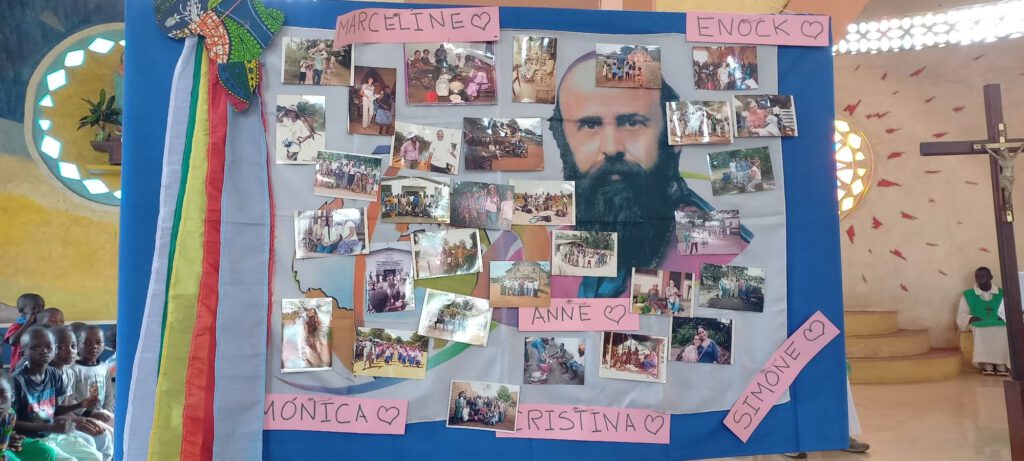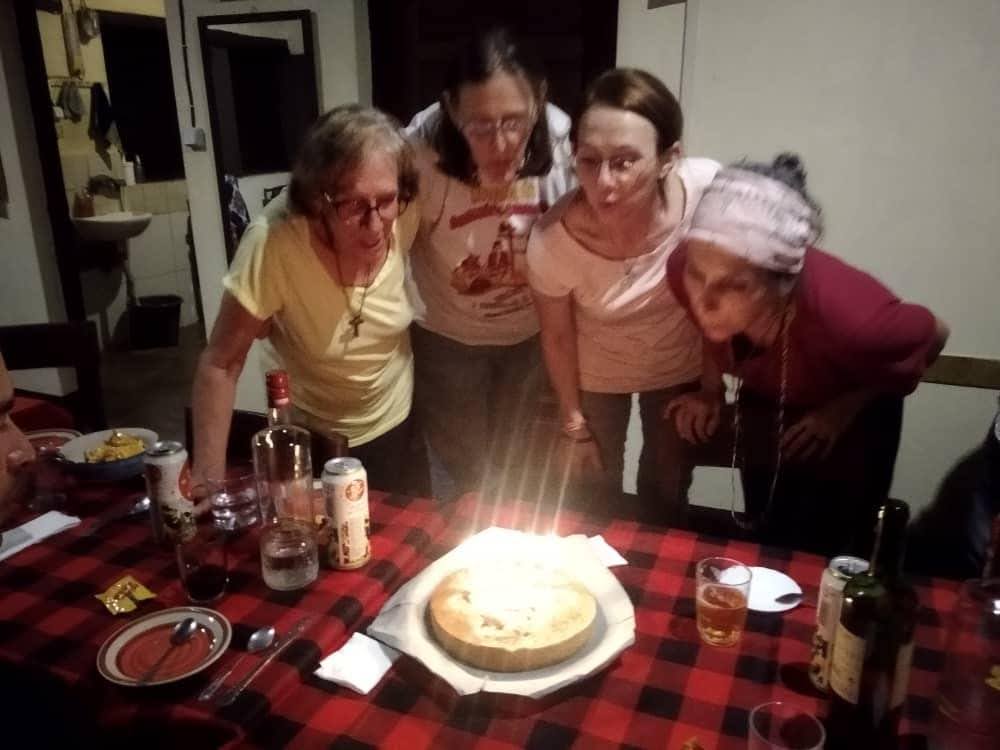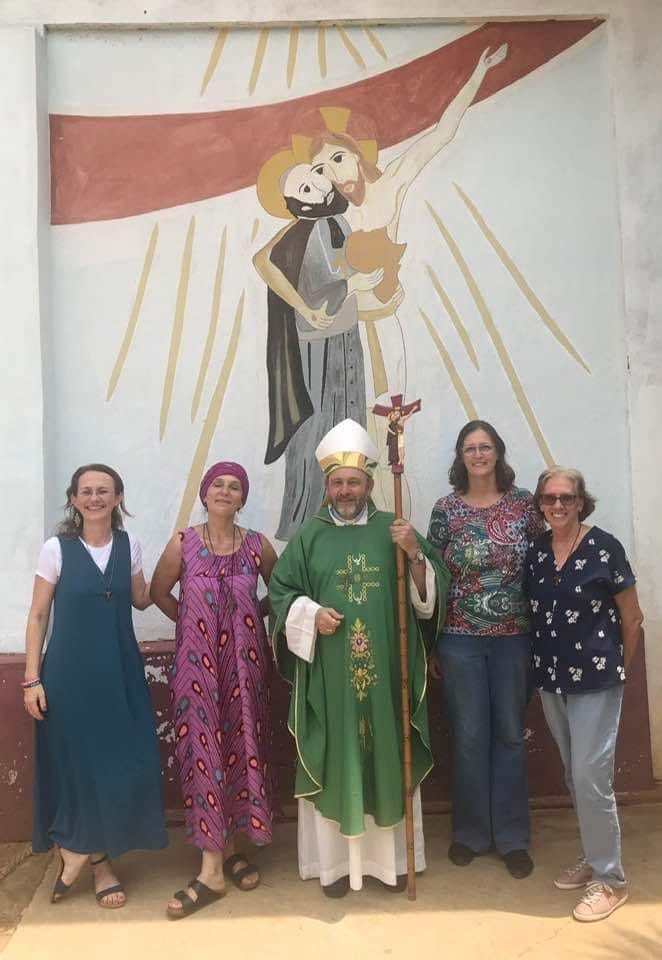World Mission Day was the ideal setting for this celebration.
Mgr. Jesús Ruiz Molina, a Comboni Missionary of Spanish nationality and bishop of the diocese of Mbaïki, where our mission of Mongoumba belongs, after thanking the Comboni Lay Missionaries (CLM) for their missionary work, whom he named one by one – a total of 18 during all this time – highlighted some of their characteristics:
First: A lay mission with a feminine imprint.
It happens that more lay women than lay men have come to the mission of Mongoumba. Fifteen women for three men. This mission on the part of the laity has a feminine imprint since its beginning, since it was an Italian lay missionary, Marisa Caira, who opened this mission for the laity, having dedicated more than 20 years of her life to it. This feminine presence contrasts with a local church, such as the Central African Church, whose movements and fraternities, where the majority are women, are led by men.
Second: Internationality.
The mission is not of a single nationality, but Catholic, that is to say, universal. And the CLM have given testimony that it is possible to live fraternity, even with cultural differences, under the guidance of the same faith. That which makes us different, far from being an obstacle, becomes an opportunity for mutual enrichment and growth as missionaries, because the mission encourages us not to close ourselves in, but to open ourselves to the new and to assume the challenges that living with people of other nationalities implies.
Third: A specific mission.
While remaining open to the service of all, the CLM have found some fields of action in which to carry out their specific mission: education, health, and the Aka or Pygmy people. This requires an adequate preparation in the professional field and an attentive sensitivity in dealing with a sector of the mission such as the Aka, historically marginalized and discriminated against in the national context.
Bishop Jesús Ruíz encouraged the CLM not to lose heart in the face of the trials to which we are continually subjected as missionaries. For this reason, he reminded them of the experience of the disciples of Emmaus to allow themselves to be accompanied by the Lord who, with his word and the Eucharist, opens our eyes to recognize him alive and to feel him walking among us. Jesús Ruíz, “If we forget the Eucharist, source and summit of our Christian being, our mission will be reduced to humanitarian or philanthropic work, but not that of witnesses of the Risen Lord who spread new life”.

Cristina Souza, CLM, from Portugal, accompanied by the laywomen Elia, also from Portugal, Cristina from Brazil and Anna from Poland, on behalf of the lay people who have carried out their missionary service in Mongoumba, thanked everyone for the support and trust received, as well as for their patience in approaching and understanding the people of the mission. She mentioned the commitments made by the laity in education, health, caritas and the Aka people that would not have been possible without the accompaniment of all.
Father Victor Hugo Castillo, delegate of the Comboni Missionaries in Central Africa, recognized the work of the CLM for a mission where personal interest is not enough, but faith in the Lord Jesus who has called and sent them. He invited the people to reflect on the witness of the laity who have left their country, their people and their culture to insert themselves in a very different reality, often overcoming the difficulties that this entails, as well as living fraternity with people of other nationalities. He encouraged the young people of the mission to decide to serve as lay missionaries in other countries, since they also have riches to share in other latitudes from their own culture. Finally, he encouraged the CLM to see this Jubilee year not as a point of arrival, but as a point of departure, to continue the work of the Lord who never ceases to invite his chosen ones to give it continuity.

Fr. Fernando Cortés Barbosa, Comboni Missionary





You did really well dear friends. I dream of coming in CAR one day .